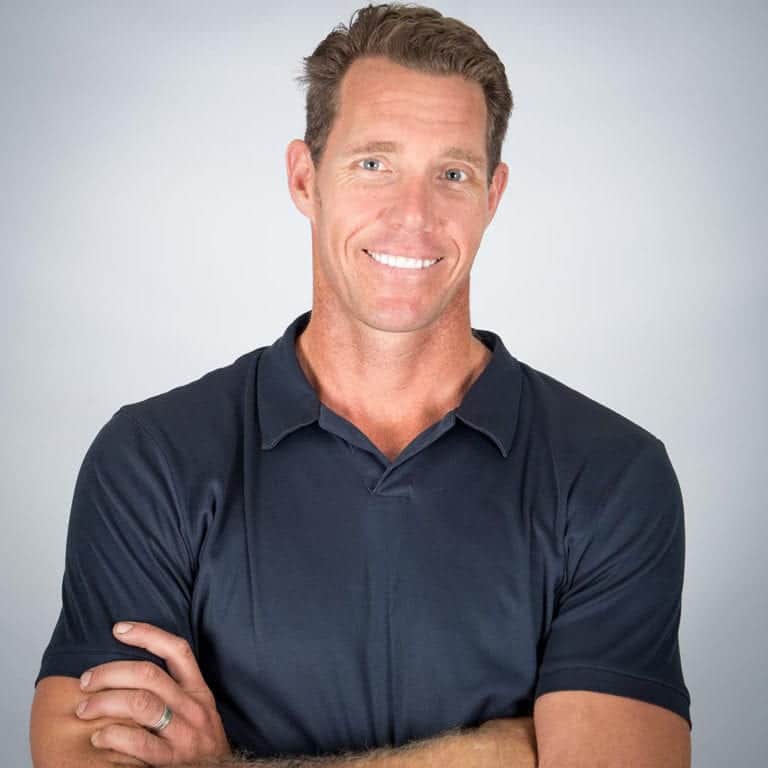Recent Articles and Videos for Sport
What’s New – Our Latest Articles
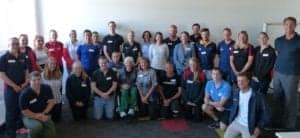
SA Recreation and Sport: 2017 Coach Development Program
Professional development for Coaches is critical. And the best Coaches know that to be the best, they must continue to develop professionally. They need to continue seeking opportunities to access new information and network with a diverse range of fellow Coaches.

Athlete Transition: WHEN ALL YOU HAVE IS YOUR SPORT?
Elite athletes dedicate their lives to their sport, but what happens when it all comes to an end? What happens when all you have is your sport?
This is a topic that has recently gained a lot of momentum as a critical issue in sport. For elite athletes, the large majority of their effort and energy is focused on their training and competition. Throughout their careers, athletes make personal, professional and financial sacrifices so they can pursue their dreams. Often, things outside of sport are perceived as a luxury they simply cannot indulge, so it stands to reason that when sport is no longer an option, an athlete’s life feels out of balance or even, meaningless.
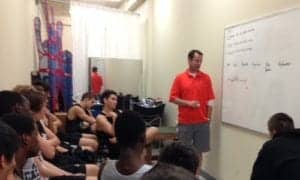
It’s not about Deficits, it’s about being your Best
One of the biggest misconceptions when it comes to Sport Psychology is that an athlete needs to have deficits in their mental game before they can seek support. But Sport Psychologist, Dr. Justin Anderson works with some of the world’s best athletes who just want to “be better”.
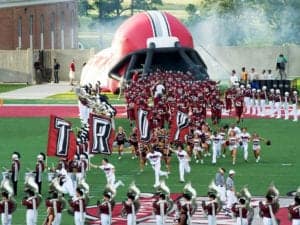
Dr. Robert Mathner: Role-modeling Success Strategies in Sport Management
The value of fostering meaningful relationships is a key concept Dr. Robert Mathner, an Associate Professor at Troy University, Alabama, instils in his Hospitality, Sport & Tourism Management (HSTM) students. He knows that supporting their inter-personal skill development will differentiate them in the job market and goes a long way to ensuring they are well prepared for the next chapter in their lives and careers.

Winning Back-to-Back Championships
Winning a National Championship is not only an incredibly special feat; it is also very hard to do. So when you win a National Championship twice, you know that it is even better and even harder.

What Employers Really Want
What is it that makes one college graduate stand out from their peers? And what do employers want more than any other skill when they are recruiting staff? According to the 2016 National Association of Colleges & Employers Job Outlook survey, the answer is leadership, team work and communication. Skills that leading universities are ensuring their students have by the time they graduate.

Get attached to Your Big Why
Elite athletes are comfortable in uncomfortable situations, they need to be, in fact, this skill alone can convert all of the work they’ve done leading up to this moment into a victory.

Taking the Confusion and Mystery out of Leadership Development
Leadership can be a complicated topic. There are literally thousands of well-meaning books and even more articles dedicated to demystifying what leadership is and how to be an effective leader. We know there are different ways to lead and many examples of varying styles and philosophies of leadership. Knowing how to be a leader can be confusing because even though new models of leadership are spoken about, at the same time, we see more traditional styles being enacted within politics, business and sport. To say it is confusing is an understatement.
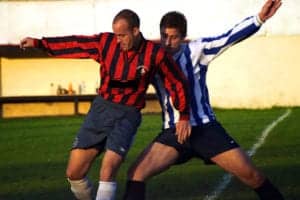
It Takes More than Talent
You may be the highest scorer or best hitter in your team, but it takes more than that to last the distance and to be chosen out of a field of hopefuls all wanting to make the cut.
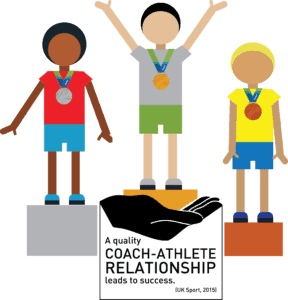
Superelites: What makes the best, the best?
Throughout August the world’s top athletes battled it out in Rio as part of the 2016 Olympic Games. But some far outshone others to take home the medals. According to Scientific American, researchers have a special term for these best of the best: superelites.
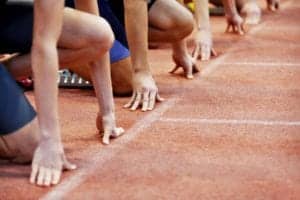
Wrapping up Rio Olympics
Rio was always going to be an unfamiliar environment for many athletes. As such, it was going to be uncomfortable.
And perhaps one of the biggest lessons to be learnt from the performances at Rio was that those athletes with the ability to best adapt to new situations and unexpected circumstances, achieved better results.
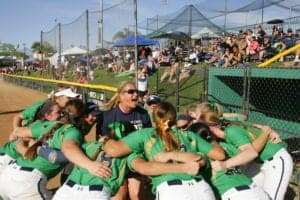
Inner-Workings of a Successful Coaching Staff
The University of Notre Dame Softball Coaching Staff are diverse and they are unique. Not only have they played together, they now coach alongside each other begging the question, what more could you learn from someone you have known so well for so long?
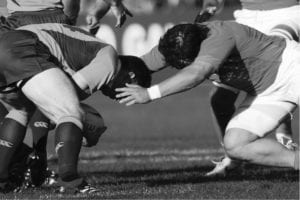
Solving a TOUGH Problem in Sport
The book GRIT made it onto many coaches reading lists over the summer (including ours) and there has been significant media coverage on the topic too. The interest is well founded as more than ever before, Coaches are unanimous in saying that their athletes are lacking resilience, they aren’t as ‘tough’ as their teams in previous times have been. And not just physically tough, mentally tough. But is ‘grit’ really the solution needed? Has the word ‘grit’ become too interchangeable that the real definition has been lost?
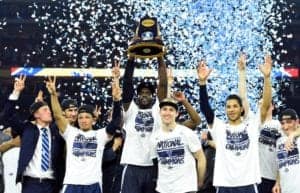
Behind the Scenes of Villanova’s 2016 National Championship Success
It is not every day that we have the privilege of writing an article about a clients’ success that includes images of the team they work with meeting the US President. But, today is one of those days. We congratulate and celebrate the behind the scenes work of consultant George Naughton and his colleague Dr Jim Brennan with the 2016 National Championship winning team, Villanova Wildcats.

Q&A with Consultant George Naughton
George Naughton has a long history with Athlete Assessments and has been using Athlete Assessments’ DISC Profiles within his consultancy for over five years. He enjoyed enormous success in 2016 when one of his clients, the Villanova Men’s Basketball Team, won the D1 National Championship. George shares his personal insights with us in this Q&A.
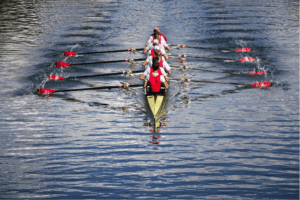
Conscious Competence Learning Matrix
As athletes we all start at the very beginning and over time, develop the skills and techniques needed to be successful in our chosen sport. This process can be defined by the Conscious Competence Learning Matrix, or a 4 stage model outlining the various stages of learning an athlete goes through in order to acquire new skills.
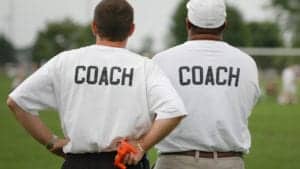
People quit Bosses not Jobs because they are not Engaged
There is interesting research, based on a Gallup survey of reasons for people leaving their jobs, which shows nearly 75% of people decided to quit because of their boss or the managerial working environment, and only 35.4% of Americans felt engaged in their workplace. If you think about it, this creates a massive and unnecessary cost to businesses, especially when you consider the cause and the fact that these numbers are fixable.
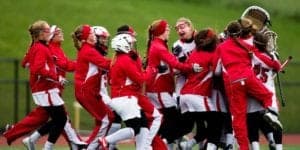
Big Win for Women in Sport and Life
If there was a way to ensure that your children would get better grades at school, grow up to be more successful in their jobs, have higher levels of self-esteem and more vitality in their overall well-being, wouldn’t you want to give them this opportunity?

In Pursuit of the perfect Post-Graduate Job
Beginning a lecture by explaining DISC theory may not sound exciting. But when the theory relates to how the students can find the best suited post graduate job, they tend to listen more carefully.
This was the case in Associate Professor, Dr Gonzalo Bravo’s Leadership in Sport Management class at West Virginia University.
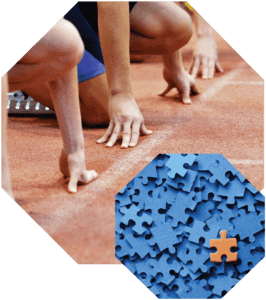
Research Review of Personality and Behavioral Assessments
This article will review and discuss the key aspects of personality and behavioral assessments and how they can be measured.
In order to do this, we must first review the distinction between personality and behavior. We must also evaluate the different methods of testing the two, specifically DISC (behavioral) and psychometric (personality) testing.
Both are used in creating organizational change and to encourage high team and personal performance, whether this be within an academic, business or sporting environment. It is important to point out that both have their merits and both will effectively provide objective data for otherwise subjective measurements.
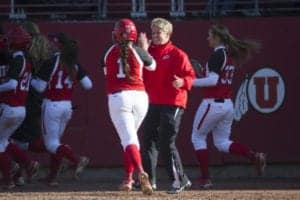
Amy Hogue – Seniors taking initiative; know your job, do your job
As a Coach, when an athlete shows initiative and takes ownership of team culture, it’s a big deal.
Culture is a measure of the observable behaviors your team and organization promotes and accepts. Ultimately, culture is best defined as ‘the way we do things around here’ or ‘the way we behave around here’. Culture is not what you think, or want to do, it is what you actually do.
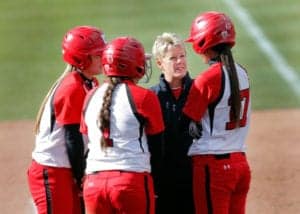
Q&A with Amy Hogue: University of Utah Head Softball Coach
We had a chance to chat to Amy Hogue about life as Head Softball Coach at the University of Utah and about some of her stand out moments along the way. You can also read more about Amy Hogue in our article on Seniors Taking Initiative.

Youth Sports, What Can They Learn From Finnish schools?
Sports in many ways is like education. Athletes need to be taught new skills, they need to be nurtured, especially in the conscious incompetence and unconscious competence stages of their learning where these new skills are still foreign to them, such as in youth sports, and athletes need to be given the best opportunities to grow and succeed by their Coaches and teammates. It is the overall environment, including a good Coach-athlete relationship, access to good equipment, training and competition environments, support mechanisms and athlete self-awareness that allows an athlete to be the best they can be. Similar to how a student given the best possible academic environment will thrive and grow into the best adult they can be.

Data Analytics in Sport: Science vs People
An article has been published in the MIT Technology Review looking at the best-selling book Moneyball by Michael Lewis and how it has changed the way people think about data analytics in sport.
Lewis’s book introduced the sporting world, and in particular those with the biggest vested interests, a method in which player performance was measured and assessed using algorithms and science driven by the ability to gather vast amounts of data about players and the play during a game.
And while this is exciting, and having and relying on all of this data is tempting, unless you can find a way to make it meaningful to athletes, it won’t work.
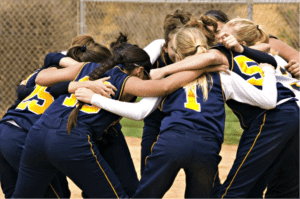
Former student-athletes blitzing the competition
We all know sports is good for us. We know it acts as a vehicle for life skills, gives us an opportunity to participate, be the best we can be and helps us develop resiliency during our training and in competition. But what you might not know is that former student-athletes are also stronger and more consistent, in areas of well-being outside of sports than non-student-athletes.
A national Gallup-Purdue Index study of nearly 30,000 US college graduates showed that former student-athletes are more likely to be thriving in four out of five areas of well-being that Gallup measures including purpose, financial, social, community and physical well-being.
Don’t miss another newsletter! Sign up today…
At Athlete Assessments, we’re here to provide you with excellence in service and to help you be your best. If there is anything we can assist you with, please Contact Us.
Search our library of free articles and videos.
Looking for something specific? You can use our search function to find what you are looking for:
Learn more about Athlete Assessments
DISC Profiling
Learn how to master the people side of sport using DISC Profiling...
What We Do
We specialize in helping our clients create and sustain winning results...
Our Clients
See who we work with and read what they say about us...


